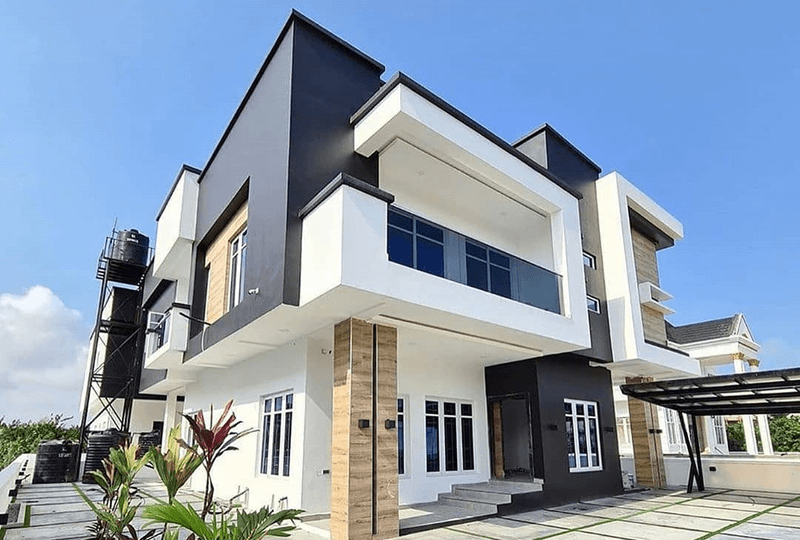Inflation is running hot in Nigeria. Rising food and transport costs have eroded household incomes, pushing the national inflation rate to 20.12% as of August 2025, according to the National Bureau of Statistics.
The real estate has shown resilience. From Abuja’s gleaming gated estates to Lagos’s luxury apartments and Port Harcourt’s sprawling lands, property has provided refuge from inflation.
Daniel Okoye, a sales executive at real-estate firm in Abuja, extols this strength. “While inflation eats your money, property grows it.”
Standing strong against inflation
A 2024 PwC report revealed that Nigeria’s real estate market has historically appreciated at 15-20% annually, even while inflation averaged 18%. Meanwhile, over the past two years, cement prices have surged to unprecedented levels.
Between 2023 and 2025, the average open market price of a 50kg bag of cement has doubled in price, climbing from about 5,000 naira to over N10,000 naira. This has had knock-on effects on the industry, driving higher property costs for landlords.
Aisha Musa, a consultant at an Abuja-based real-estate company, explains that despite hurting construction, inflation also drives up the value of properties. “A home you bought for ₦40 million in 2020? Today, it’s selling for almost ₦100 million. That’s how people hedge.”
For the middle class, affected by stagnant salaries and rising cost of living, this hedge feels almost miraculous.
Oladipo, an Abuja-based banker, bought a modest two-bedroom apartment in 2018 for ₦18 million. “At the time, it felt like I was overreaching,” he says over cappuccino. “But now, the same unit is valued at nearly ₦60 million. That single decision saved me from financial ruin. If I had kept that cash in savings, it would buy only half of what it bought then.
Hardly a smooth path
Still, real estate is no magic wand. Buying property in Nigeria can feel like navigating a minefield—fraudulent land sales, inadequate documentation, and soaring construction costs.
“Every day you wait, cement, iron rods, roofing sheets—they all go up,” warns Mustapha, a civil engineer. Many cautious clients, he adds, return months later only to find themselves priced out.
Developers are adapting to these pressures. Firms like Bilaad Realty are investing in smarter, more resilient homes.
“We’re not just building houses, we’re building communities,” Musa says. “Our homes come with solar systems, energy-efficient designs, and secure infrastructure that will hold value long-term. Buyers don’t just want four walls—they want assurance their investment will still be desirable in ten years.”
In Abuja’s emerging districts like Lokogoma, Katampe, and Guzape, such properties are selling fast and appreciating strongly
But success depends on more than inflation. Location, infrastructure, and documentation remain critical. “We’ve seen people lose millions buying cheap land in flood-prone areas or without proper titles,” Musa cautions. Inflation, she stresses, cannot rescue a bad decision.
While luxury apartments in Maitama or Ikoyi soar, poorly serviced areas often stagnate despite rising prices elsewhere.
In turbulent economic times, Nigerians are searching for anchors—and brick by brick, estate by estate, they are building them. For families fleeing inflation’s grip, diaspora investors seeking dollar returns, and middle-class workers hedging stagnant wages, real estate has become more than an asset class. It is survival.
As investor Ifeanyi puts it, “Inflation is a thief. Real estate is the lock on your safe.” In today’s Nigeria, where tomorrow’s naira is never guaranteed, that lock is not just financial strategy—it is peace of mind
Summary not available at this time.






